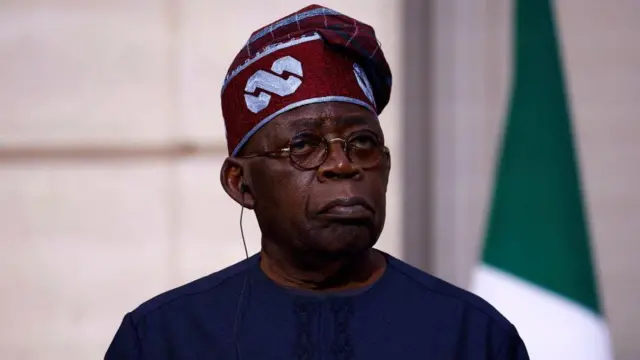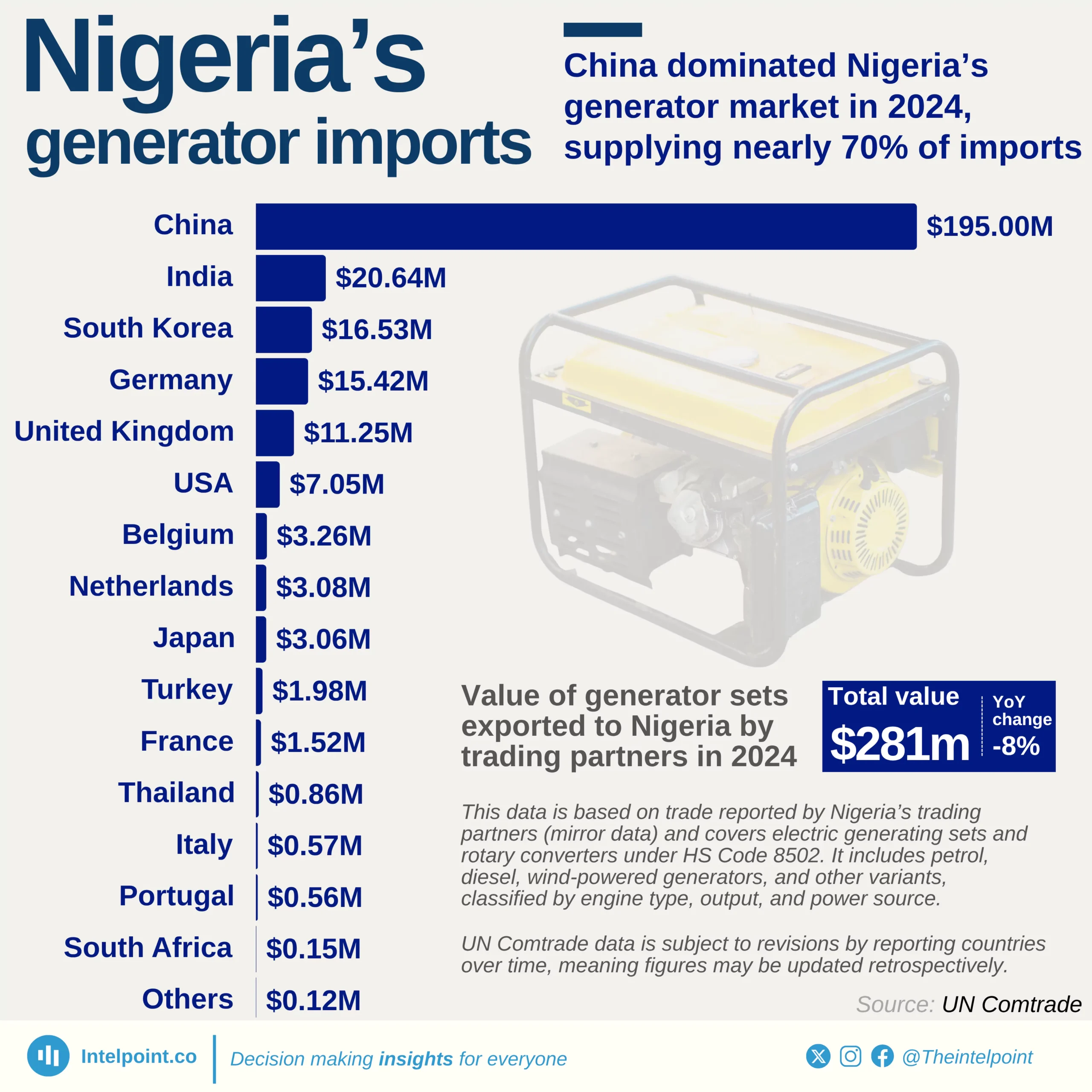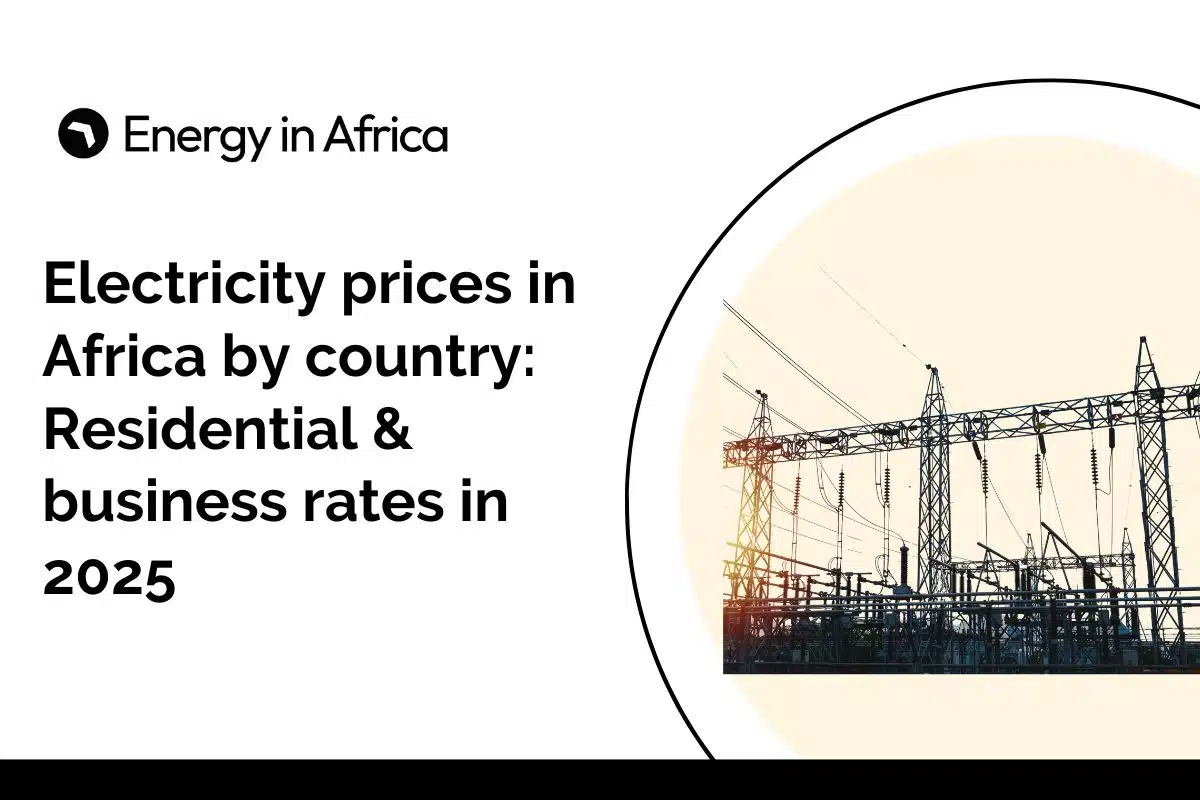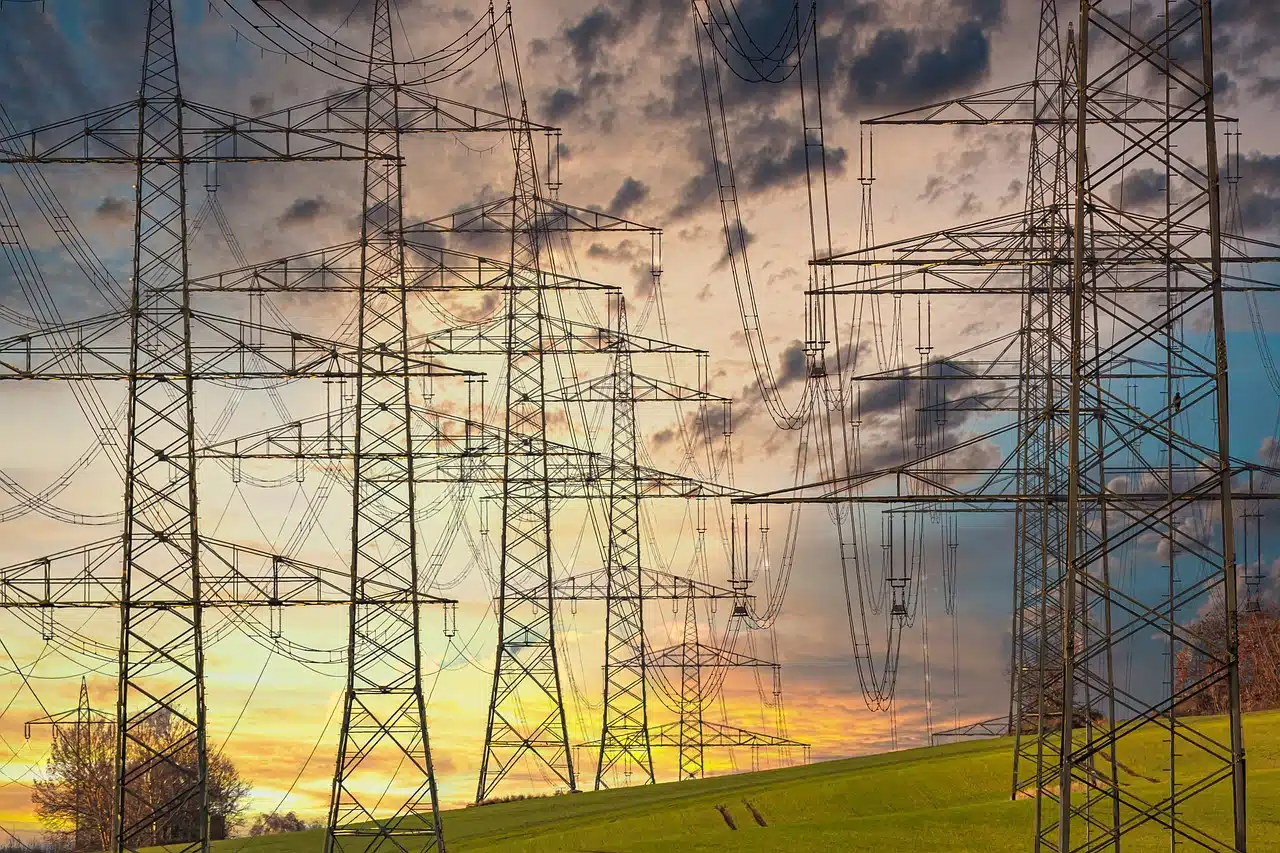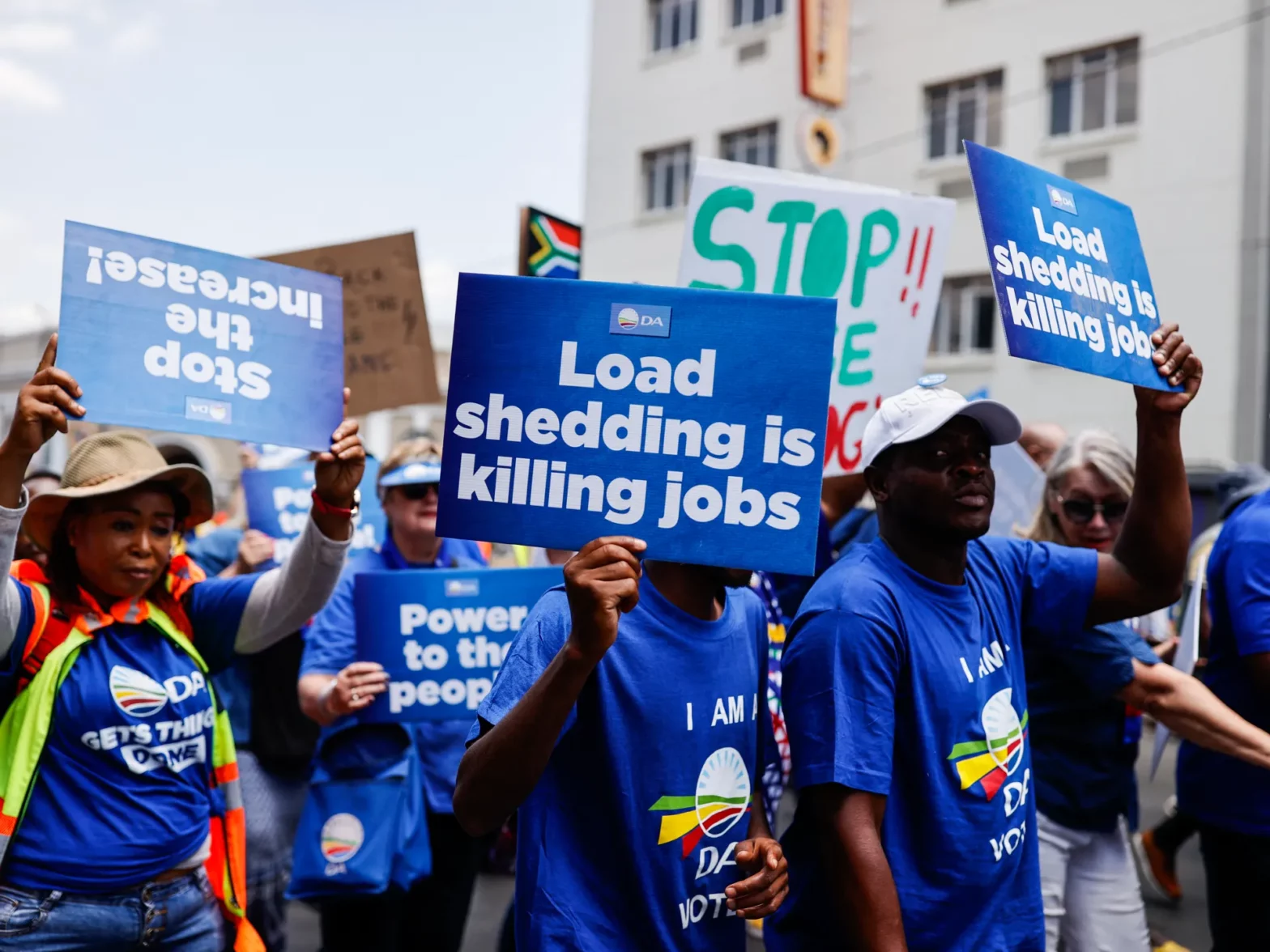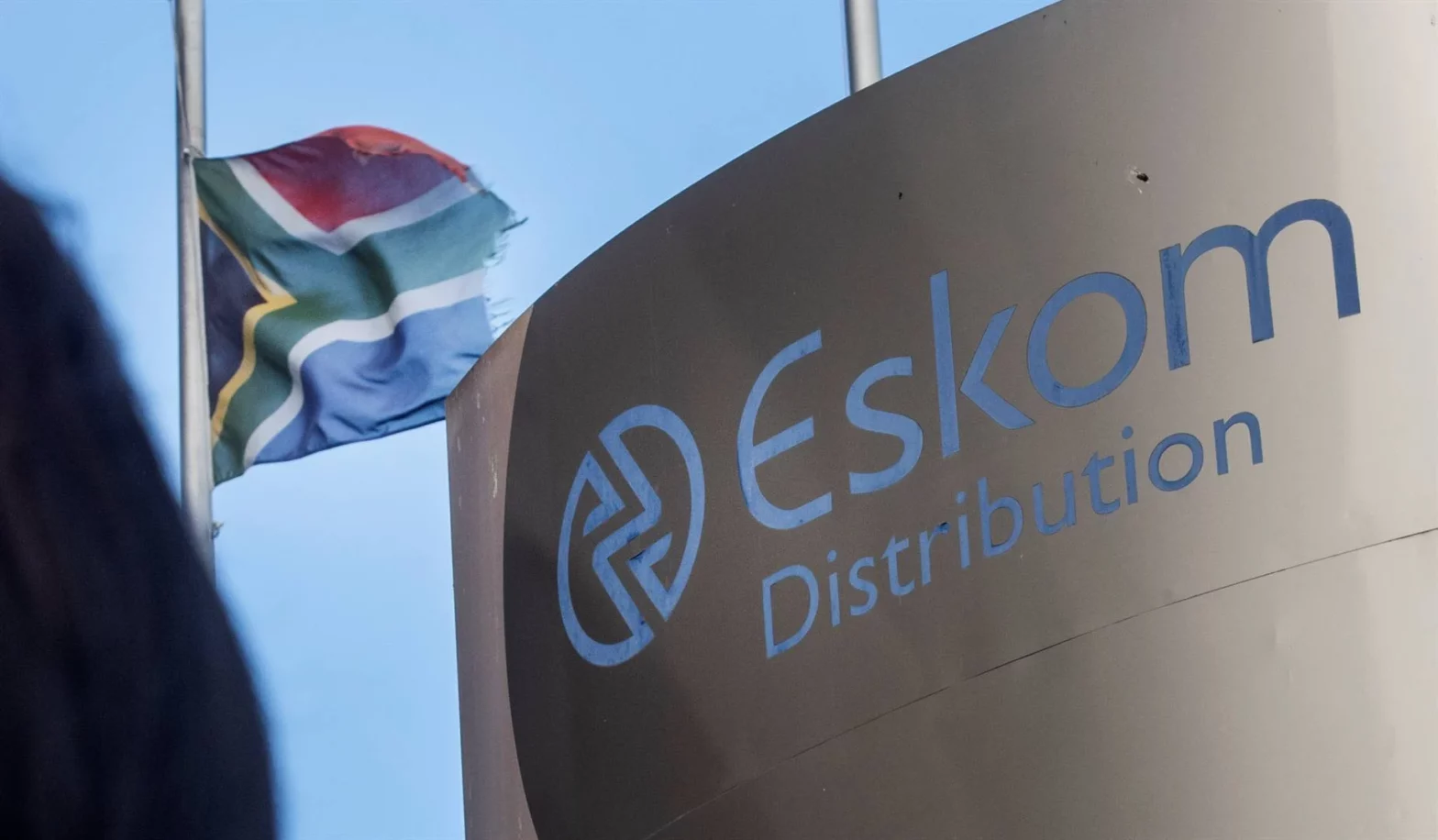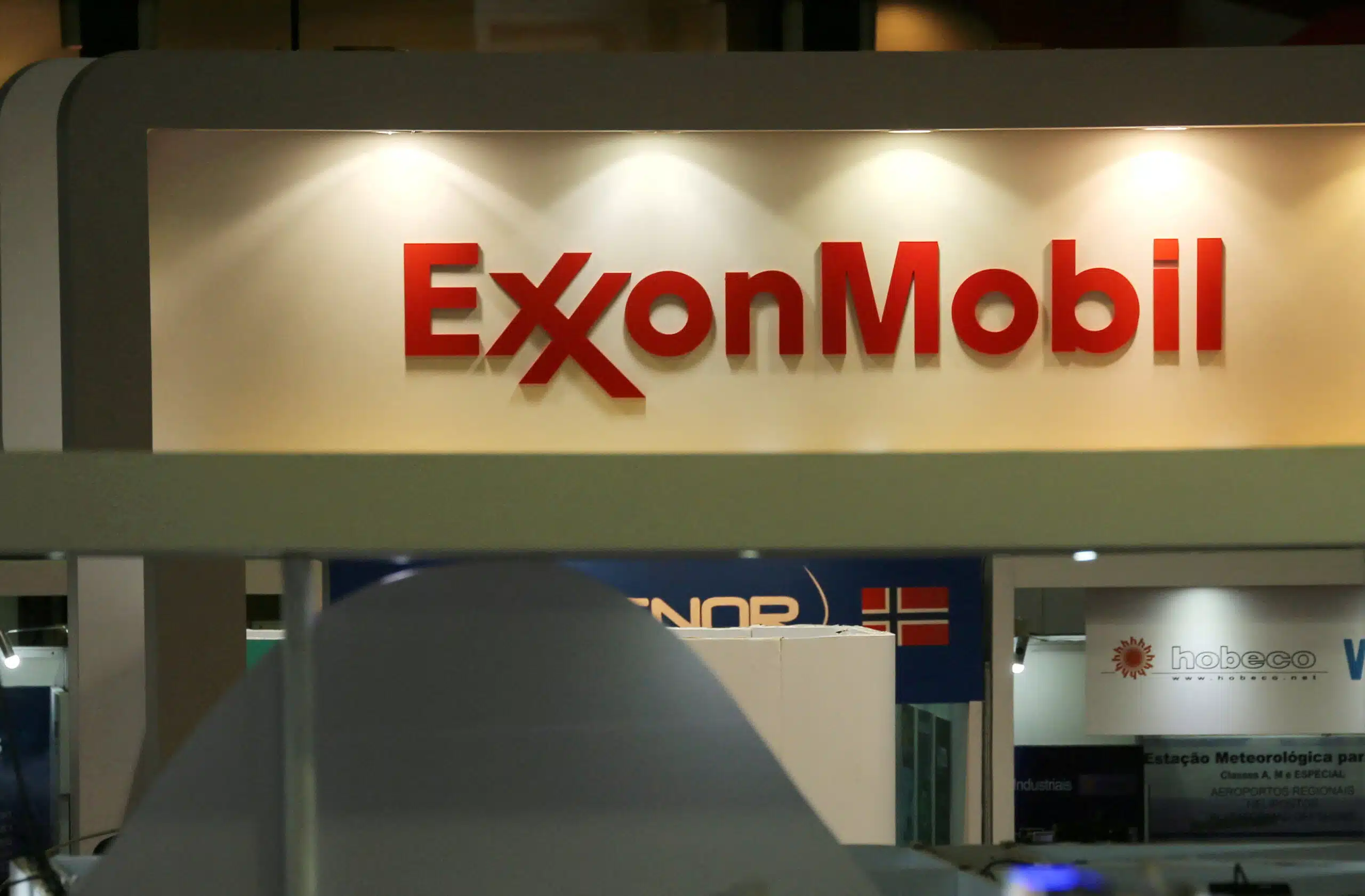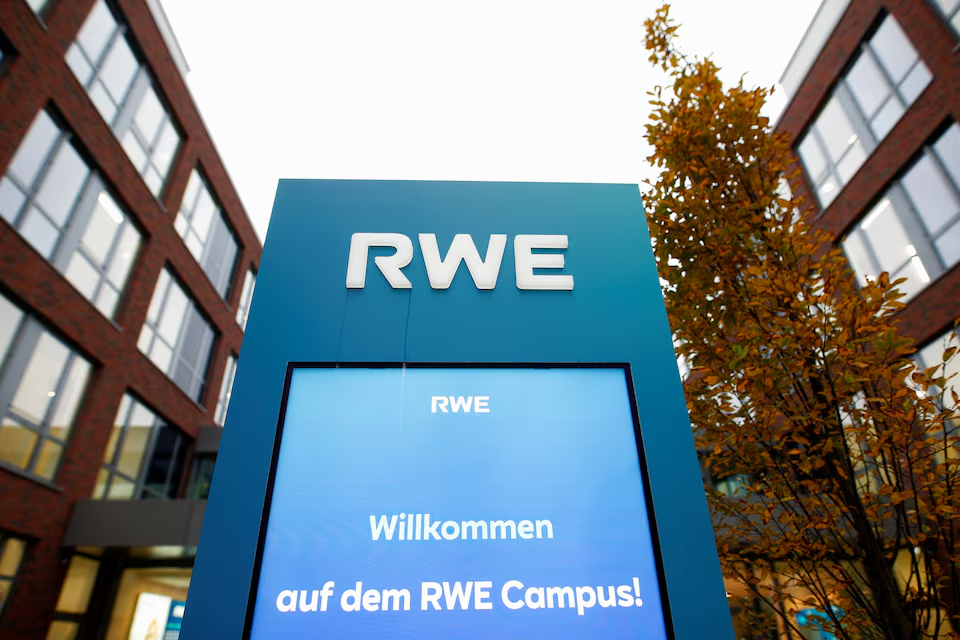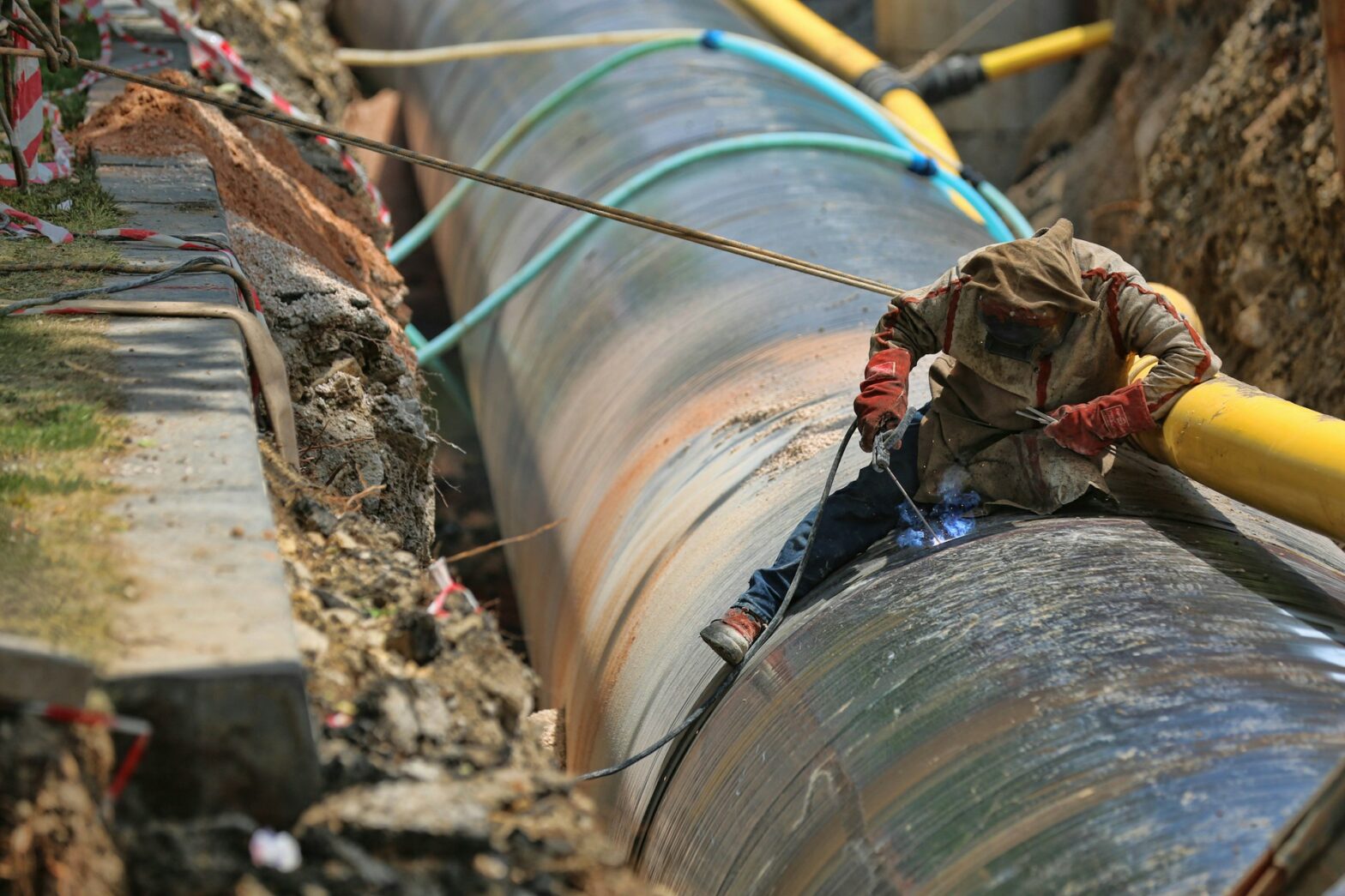In Nigeria, electricity is a big challenge for the current government in power.
The West African nation, with its over 200 million people, has more than 90 million of them still living without any form of electricity coverage.
The country is also the largest importer of gasoline-powered generators, with about 70% of its households relying on the high-carbon source of energy as an alternative.
Nigeria’s electricity crisis did not begin today, with every administration promising it will solve the lingering challenge once given the opportunity.
Every four years, millions head to the polls to elect a president. Amid the myriad of concerns, one issue remains top of mind for most voters—electricity.
As the 2027 general elections approach, the conversation is beginning to heat up again. And this time, it might be more intense for the ruling party, APC.
Prior to the election, the incumbent president, Bola Tinubu, vowed in a public address to fix the nation’s endemic power hurdles in four years.
He added that no electorates should vote for him if he did not fulfill that promise in the next electoral cycle.
In his words:
“Whichever way, by all means necessary, we must have electricity. And you’ll not pay for estimated billing anymore. A promise made will be a promise kept.
“If I couldn’t keep the promise for you, and I come back for a second time, don’t vote for me. That’s the truth,” Tinubu declared boldly to a rousing audience.
Now, with two years to the next polls, the opposition is taking him at his word.
Without a doubt, the power crisis in Nigeria may not be something an administration will solve in four years, given varying political constraints and decades of underinvestment.
But Tinubu’s words might cost him, especially with the newly formed coalition hitting him in all directions.
In a press statement on Sunday, the spokesperson of the coalition, Bolaji Abdullahi, took to Twitter (now X) to challenge the president on his promise.
Abdullahi reminded the president of his words, adding that the power situation in the country has nothing but worsened since Tinubu took over.
“Since Tinubu took office, electricity tariffs have jumped by 240%, but the grid has collapsed 12 times, plunging millions of homes and businesses into repeated darkness.
“Over 90 million Nigerians still lack electricity, while many get just 4 to 6 hours a day under Tinubu’s failed Band A–E system,” the spokesperson said in a fierce statement.
Abdullahi isn’t the only one who shares this sentiment.
For the opposition bloc as a whole, electricity remains one talking point or area the incumbent stands to be challenged.
For one, Tinubu’s administration introduced the biggest tariff the country ever witnessed on electricity users soon after it resumed office.
The tariff, which jumped by almost 300%, was said to be targeted at elite customers, who are not more than 15% of the total users in the country.
However, there are credible reports that this tariff is also being paid by those who live in the rural communities, compounding the burden of cost of living crisis on these individuals.
On their part, the APC has vehemently defended this position as radical steps needed to reform and revive a power sector drowning in debt and underinvestment.
A decade long crisis
To be fair, the power crisis didn’t start under this current administration. And one might arguably say it hasn’t worsened since President Tinubu took over.
Nigeria’s electricity challenge is multifaceted—plagued by neglect, dilapidated infrastructure, oblique political interference, and, more importantly, the absence of a competitive market to drive growth.
Before Tinubu, there have been reforms after reforms by different administrations to address these issues.
In 2005, the then President Obasanjo introduced a reform that subdivided the sector, enabling the influence of private players, especially when it comes to gas supply to power the thermal power plants in the country.
Eight years later, another administration further decentralized the industry, allowing major private sector players to buy licences to operate the distribution networks in the country, with the government holding on to the minority stake of 40%.
This was later referred to as the privatization effort of the power sector in the country.
As of today, eleven privately owned companies control different distribution networks of the power sector, all of which are domiciled in different regions in the country.
The last administration also introduced its own reforms, including the Presidential Siemens Project.
The project, with an ultimate cost of about $3 billion, aims to increase the country’s generating capacity from a meagre 5,000 megawatts (MW) to 25,000 MW.
The project was launched in 2018.
But seven years after, Nigeria’s peak power capacity is still within 5,300 to 5,400 MW.
The Siemens project, which was in collaboration with the German company of the name, hadn’t really been successful, with allegations of underfunding and corruption plaguing it.
Apparently, for Tinubu, he might have underestimated the political interference and malfeasance within the sector.
The setback started early, when the individual he purposely wanted to choose for the role of Minister of Power, Nasir El Rufai, was suddenly withdrawn by the Senate due to shabby accusations of “security clearance.”
Tinubu later appointed another astute politician, Adebayo Adelabu, for the role.
El Rufai today is one of the leading voices in the opposition, championing the coalition to contest against Tinubu in 2027.
Tinubu’s attempt to reform the power sector
Moreover, Tinubu’s promise to reform the power sector isn’t just words of mouth alone. Unlike his predecessor, his policies have been more pronounced and bold in addressing these challenges.
The president was bold enough to implement a sweeping tariff system that partially allowed some electricity users to pay cost-reflective rates for their usage.
In two years, he has also signed two electricity Acts into law, revising the old laws that govern the sector.
But his wins have also been overshadowed by some losses.
Despite these reforms, rural electricity penetration is still at its lowest, and peak power generation hasn’t in itself increased in any significant way to show an upward trajectory.
On the part of estimated billing, which the president also vowed to end, about 7 million of the 13 million registered users are still without a meter, according to the latest report from the country’s electricity regulatory body.
And as of today, Nigeria still has the highest number of people living without electricity in the world.
The question remains, will Tinubu be able to change all of that with less than two years remaining in his administration?
Or should the electorate take him at his words and not vote for him when he returns in 2027?
The opposition has a case to make
Needless to say, the opposition has a case against the sitting president.
Electricity isn’t just a political issue; it’s an economic crisis that urgently needs to be fixed.
According to credible data, Nigeria’s businesses lose nothing less than $90 billion in foregone cost yearly due to the absence of stable electricity.
Most businesses, factories, and industries in the country rely on one or two alternative energy sources to run their operations.
All these come at additional cost for those in the sectors; most of these costs are ultimately transferred to the final consumers.
About 15% of Nigeria’s inflation index is primarily due to high energy cost.
Businesses that rely on alternative energy, such as diesel-powered generators or solar, are more likely to charge more than those who run on centralized electricity, given the benefit of economy of scale and external cost.
The president has repeatedly said his goal is to build a $1 trillion economy in the next eight years, but all of these will perhaps be unachievable without constant electricity.
Nigeria’s billionaire and entrepreneur, Tony Elumelu, describes it best when he said:
“I want to use this opportunity to reiterate that access to electricity remains the single most critical factor in fixing the Nigerian economy, especially as we seek to have the non-oil sector make greater contributions to our economy,” he said.
“We must, therefore, fix power to fix and transform Nigeria. We know that to grow a $1 trillion economy, electricity must be fixed. That is not the case today,” Elumelu said in a statement.
Will this be enough for 2027?
The rhetoric for 2027 will be in different forms.
Apparently, the opposition will be counting on some of the lapses of the current administration to push against a return into office.
Given the president’s current scorecard, and all things being equal pending 2027, the opposition seems to have a lot of ammunition in their disposal.
And power will definitely be one of them.
The question now will be whether it will be fair to put all the blame for the electricity crisis on the four years of this current administration.
Or more importantly, will the electorates be convinced come 2027 that the president really hasn’t done a good job when it comes to providing electricity to the majority of the country?

